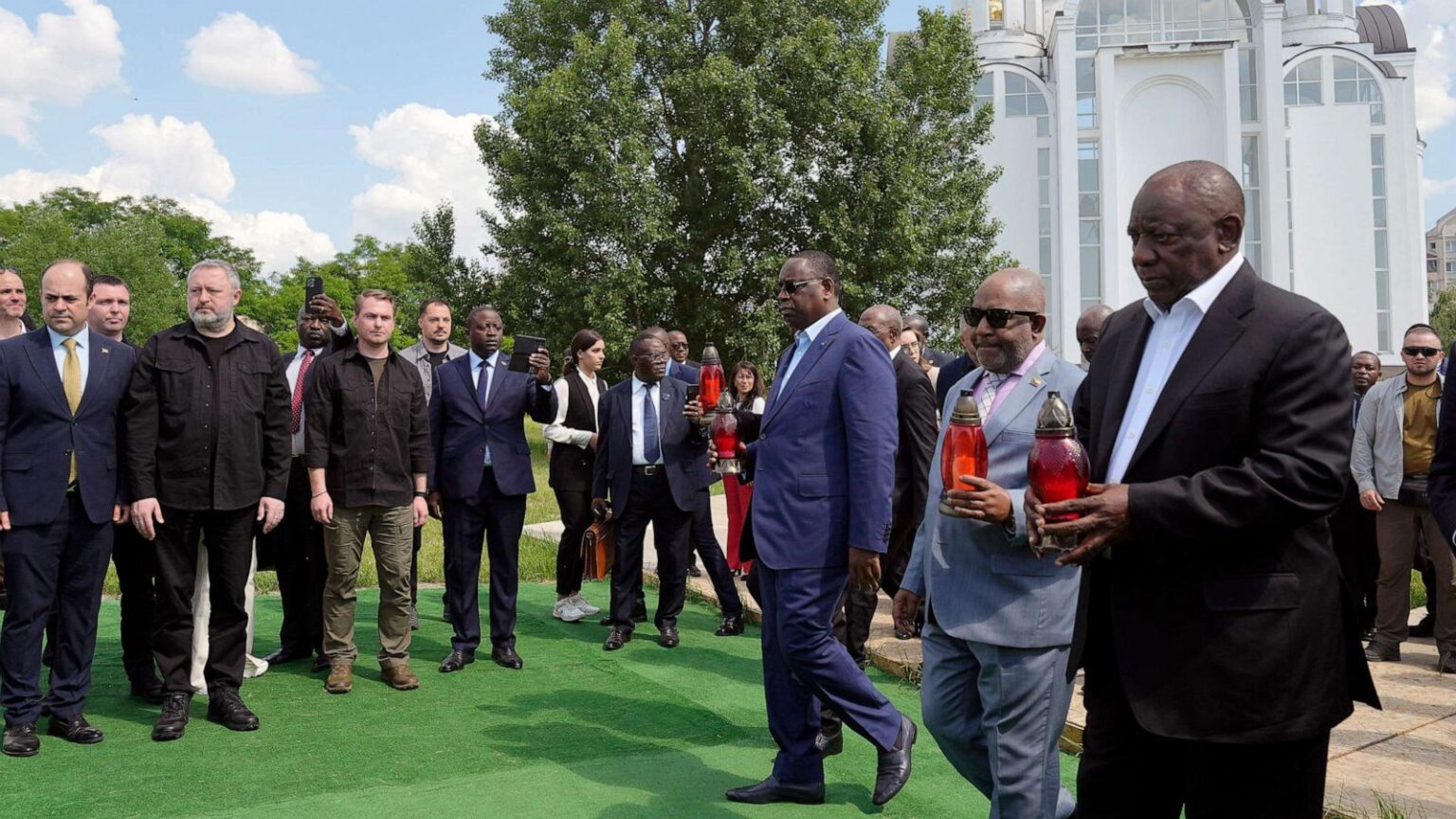- Seven African leaders have visited Ukraine and Russia in an effort to put an end to the almost 16-month-old war.
- The Ukraine-Russia war is negatively affecting production and supply of food in Africa and across the globe.
- The African peace mission coincides with Ukraine’s counteroffensive to drive out Russian forces out of occupied lands.
Stung by worsening negative effects of the Russia-Ukraine war on their economies, seven African leaders have visited Kyiv and Moscow in an effort to put an end to the almost 16-month-old war.
African Peace Initiative Mission
In an initiative dubbed African Peace Initiative Mission, the seven were the presidents of Comoros, Senegal, South Africa, and Zambia, as well as Egypt’s prime minister and top envoys from the Republic of Congo and Uganda.
The ongoing war between Ukraine and Russia is increasingly negatively affecting Africa’s economic development. Continued loss of lives, higher economic costs to trade and instability in global peace prompted action from the leaders.
Interestingly, the African peace mission coincides with Ukraine’s counteroffensive to drive Kremlin forces out of occupied territory. Kyiv is deploying advanced weapons supplied by the West to kick out Russian forces.
Later, the leaders of Africa met with Russian President Vladimir Putin to explore an ambitious plan of mediating a peaceful end to the conflict. They anticipate that the initiative will help stabilise both areas and address the current economic unrest in Africa.
The likelihood of peace negotiations currently appears slim because Ukraine and Russia have very divergent positions. As a prerequisite for peace talks, Ukraine insists that Russia evacuate all of its troops from the occupied territory. The Crimean Peninsula, which Moscow illegitimately acquired from Ukraine in 2014, as well as additional territorial acquisitions are what the Kremlin wants Ukraine to recognize as being a part of Russia.
Africa bearing brunt of Russia-Ukraine war
The Ukraine-Russia war was an unexpected turn of events that caught the entire globe by surprise in February 2022. Despite calls for peace, both countries have refused to back down, and a full-on war started. Unfortunately, Africa has been forced to bear the brunt of the war given that Ukraine and Russia are key import markets.
African economies and businesses are having trouble due to supply chain issues. As food and fertilizer shipments from the war-torn region, which are crucial for feeding the continent, substantially decline, millions of people in Africa are struggling with hunger.
Read also: Zimbabwe: President Mnangagwa’s measures to restore investor confidence
On June 16, the Ukrainian President Volodymyr Zelenskyy met with the African Peace Initiative Mission. Despite the hazards posed at the moment by a furious Russian air raid, the meeting continued.
Conflict negatively affecting Africa
Following their private talks, South African President Cyril Ramaphosa, Ukrainian President Volodymyr Zelenskyy, and four other African leaders said at a news conference that “this conflict is negatively affecting Africa.”
South Africa’s Ramaphosa and others acknowledged the severity of the fighting. They, however, argued that all wars must stop and made clear how eager they were to hasten that process.
“I do believe that Ukrainians feel that they must fight and not give up. The road to peace is very hard,” he said, adding that “there is a need to bring this conflict to an end sooner rather than later.”
Ukraine President Zelenskyy asked questions after Comoros President Azali Assoumani mentioned a “road map” to peace and emphasised that he didn’t want “any surprises” from their meeting with Putin.
Fortunately, Russia also welcomed the African Peace Initiative Mission in hopes of ending the war. “The peace initiative proposed by African countries is very difficult to implement, difficult to compare positions,” Kremlin spokesman Dmitry Peskov said. But “President Putin has shown interest in considering it.”
Read also: SA business head to Mozambique for investment opportunities
Effects of Russia-Ukraine war in Africa
Economies and ordinary citizens across Africa are reeling from high inflation largely attributable sky-high energy and food prices. As the toll courses across the continent, only a few understand that the Ukraine-Russia war is playing a big role in bringing tough financial times to Africa.
Across Africa, food and fuel prices are soaring due to the inability of Ukraine and Russia to significant volume of goods. The war has severed ties between Russian and European ports and left Ukraine’s Black Sea ports either occupied or blocked by Russian military.
Consequently, Africa has seen the volume of imports such as fertiliser, cooking oil, and grains drastically drop. According to the US Department of Agriculture, Ukraine is the world’s seventh-largest wheat exporter.
On average, Kenya imports 30 percent of its wheat from Russia and Ukraine. With the raging war, therefore, its already high food scarcity rate has increased significantly within the year.
The Ukraine-Russia war has affected both the production and supply of food in Africa. Populaions in Mali, Niger, Burkina Faso and Mauritania are experiencing severe food insecurity.
Read also: Why businesses should invest in promoting global peace.
The continent’s energy sector has rapidly increased, soaring to a three-decade high. According to the 2022 World Economic Outlook, the price of natural gas edged over $327. Unfortunately, this comes at a grave time as various African countries are yet to finalize several energy-related projects. As a result, they have to deal with heightened energy import costs and spend more to complete their ongoing renewable energy projects.
The price of fertilizers has also gone up, which indirectly jeopardizes Africa’s ability to produce food. According to the World Food Program, fertilizer costs have increased worldwide by 199% since May 2020. Small-scale farming accounts for the majority of agricultural production in Africa. A rise in input costs implies that farmers must raise their prices to turn a profit.
